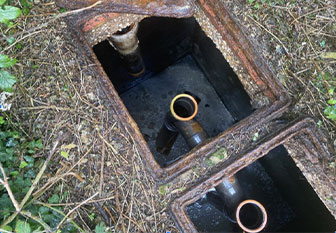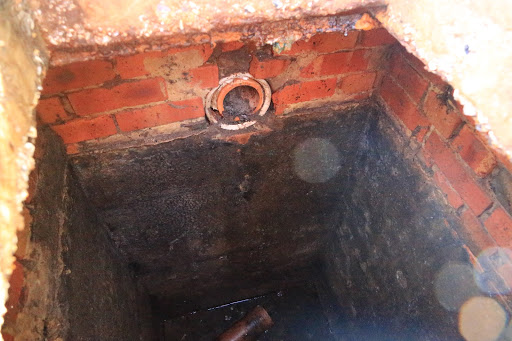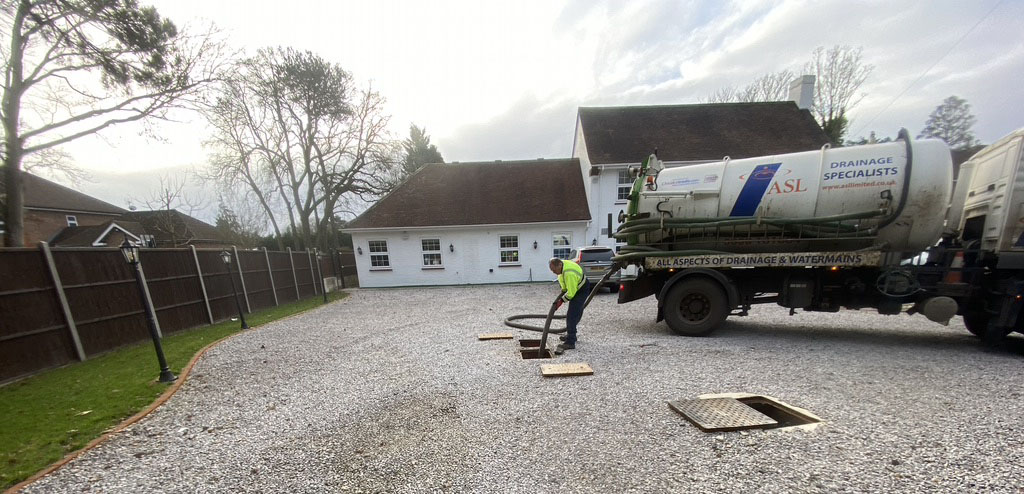What to check If you’re buying a house with a septic tank

If you plan to buy a house with a private sewage system, it’s important you are aware of the regulations. While you may dream of living in the country, you will need to understand the world of private drainage systems.
Don’t put yourself in a situation where you discover problems with your septic tank after you’ve moved in.
Questions to Ask the Owner Selling the House
- Where is the septic tank located?
- Is it officially registered?
- When was it last emptied, and can you see the receipts?
- What was the cost of emptying?
- What are the annual maintenance costs?
- What is the capacity?
- How old is the septic tank, and what condition is it in?
- How long ago was it installed?

Don’t settle with a poor septic tank.
If you’re looking to buy a property with a septic tank, you should not saddle yourself with a poor one. This includes any system that isn’t in good working order or causes pollution. It is important when viewing the property to identify where the septic tank is located. You should also find out how it works, where it discharges wastewater and any rights and obligations in place if the system is located on someone else’s property.
You should also ask about the septic tank dimensions and, if possible, the ground type conditions.
Who is the septic tank operator?
The operator is the person in charge or has control over the septic tank's operation. Often the operator is considered the owner of the system, a neighbour who uses it, or anyone else who has signed a written agreement to be responsible for the maintenance (a tenant, for example).
Has the property owner maintained the septic tank?
One of the points you need to ask the current property owner is whether they have properly and regularly maintained their septic tank. To check what they’re saying is true, you can request invoices or receipts for any services, emptying, or maintenance carried out on the property. This helps you know exactly how well the septic tank has been maintained.
Ask about the annual septic tank maintenance costs.
Septic TanksAnother good point to consider is how much septic tank maintenance costs annually. If you’re working on budgeting for all your outgoing costs of owning the property, it is essential you find out about annual maintenance costs so that you can calculate how much septic tank maintenance will cost.
Book a pre-purchase drainage survey
When buying a house with a septic tank, it is vital you have a full pre-purchase drain survey carried out beforehand. As specialists in house purchase surveys, we know the importance of thorough drain surveys. Ensure that any faults are highlighted before you move in. This will provide you with the peace of mind that there won’t be any nasty surprises after you’ve moved in.
Buying a house with a shared septic tank
Sometimes in rural areas, it is common for properties to share septic tank systems with their neighbours. Therefore, when buying a house in a rural location, it is important to find out from the current owner whether the septic tank, the pipework, or the soakaway system is on a neighbour’s property.
Ask what the relationship is like and whether the neighbour is friendly and helpful when it comes to any repairs or replacements of the septic tank. If the relationship is bad or the neighbour is unhelpful, you could be denied the right to access the septic tank. If this happens, you will have to pursue access through the courts, and this could cause a whole lot of time, money, and trouble you didn’t initially bargain for when you bought the property.
Things that are important to clarify when buying or selling a house with a shared septic tank are:
- Who shares it
- Whose property it’s on
- Where it discharges to and the appropriate permits associated with that.
- What permissions it involves (are you allowed to access it, make repairs, or dig up the land on your neighbour’s property, should new drains need to be laid).
Find out if the septic tank is on your land.
If you discover that the septic tank system is on your property, you need to ask about permissions. Find out whether your neighbours have permission to access and dig up your land. It would help if you also asked whether there have been any issues with neighbouring relationships in the past (as mentioned above). Knowing each person's rights responsible for the septic tank is important and should help prevent any problems.

What is property access like?
Another point you need to consider is what access to the property is like. To successfully empty, desludging, and maintain a septic tank, workers often need to get within 30 metres of the tank. You should check that the roads getting to the property and the property itself provides sufficient access for HGV sized vehicles. You may find this information in the records of maintenance, but if these records are limited, it may be worth investigating if there have been any access problems in the past.
Consider the capacity of the septic tank.
When buying a house with a septic tank, it is important to consider tank capacity and size. Ensuring your septic tank is the right size helps reduce the likelihood of blockages and overflowing. If the septic tank on the property is too small, you will reduce your soakaway system's life and have to replace it. Whether you have small sewage or large sewage needs, your septic tank must be the right size.
It is also important to consider whether you are planning any future extensions. You need to think about how you’ll maintain appropriate access points if this was the case. Likewise, if the neighbour was to extend their property and the septic tank is shared, the whole system would need upgrading.
Septic tank capacity guidelines
Septic tank capacity must be below the inlet level. So, as general binding rules and guidelines state, a 2,700-litre septic tank would appropriately serve up to 4 people. If you have more than 4 people in your home, the septic tank capacity must be increased by 180 litres for each user. If you have any questions about septic tank capacity and your requirements, please do not hesitate to call us.
Points you need to remember.
The Environment Agency is working hard to reduce pollution. So, it is a legal requirement that septic tanks discharging into surface water must be replaced or upgraded by 1st January 2020.
The septic tank must comply with the relevant British Standard in force at the time of installation. The operator must also operate the system under the manufacturer’s specifications.
All septic tank maintenance, emptying, and desludging must be carried out by an authorised professional and licensed waste carrier.
Don’t get caught out.
When buying a house with a septic tank, it is essential you consider all the points we’ve mentioned above. This will help ensure you’re moving into a home with a septic tank that isn’t going to be problematic. One of the most important points you need to remember is that you must comply with the new septic tank regulations. Otherwise, you could face a significant fine!

